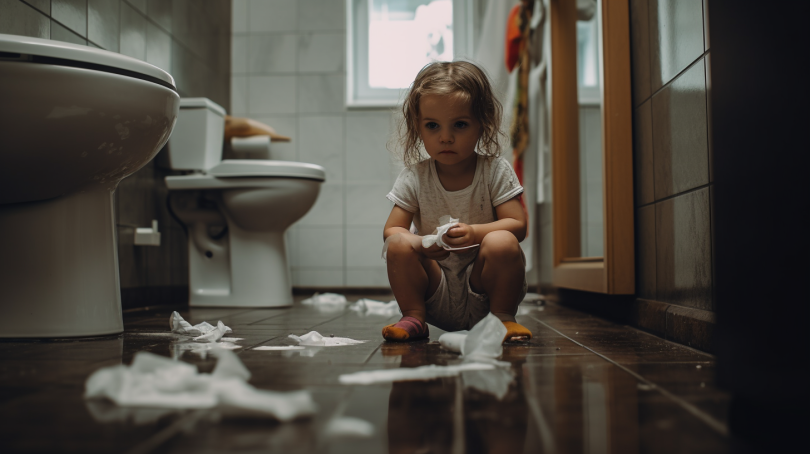Accidents during potty training are a normal and expected part of the process. It’s essential to approach these setbacks with patience, understanding, and a sense of humor. In this tutorial, we’ll provide expert tips on handling potty training accidents like a pro, covering everything from staying calm and supportive to cleaning up efficiently.
1. Stay Calm and Supportive
The first step in dealing with potty training accidents is to remain calm and composed. Remember that your child is learning a new skill, and setbacks are inevitable. It’s crucial not to make your child feel ashamed or embarrassed when an accident occurs.
When an accident happens, use reassuring language and maintain a positive tone. For example, you can say something like “That’s okay! Accidents happen. We’ll try again next time.” This approach will help your child feel supported and encouraged to keep trying.
2. Be Prepared for Accidents
One of the best ways to handle potty training accidents is to be prepared for them. Keep the following items on hand to make cleanup easier:
- Clean clothes: Have spare clothes readily available for quick changes.
- Paper towels or wipes: Useful for cleaning up messes on surfaces and floors.
- Plastic bags: For sealing soiled clothing before washing.
- A portable potty or travel toilet seat: Handy for outings or trips where restrooms may not be easily accessible.
By being prepared, you can minimize the stress associated with potty training accidents and focus on supporting your child through the process.
3. Clean Up Quickly and Efficiently
The key to cleaning up after an accident is to act quickly and efficiently. Here are some tips on how to clean up various types of accidents:
- Urine accidents: Blot the area with paper towels or a cloth to absorb as much liquid as possible. Clean the surface with a solution of equal parts water and white vinegar, followed by a mild detergent if needed. Rinse well and allow it to air dry.
- Bowel accidents: Scoop up any solid waste using a disposable glove or plastic bag, then dispose of it in the toilet. Clean the area with disinfectant wipes or a bleach solution, followed by a mild detergent if needed. Rinse well and allow it to air dry.
- Soiled clothing: Remove soiled clothing carefully to avoid spreading messes. Rinse out any solid waste in the toilet, then place the clothing in a sealed plastic bag until you can wash it.
Remember to wash your hands thoroughly after cleaning up an accident.
4. Reinforce Potty Training Lessons
After an accident, take the opportunity to reinforce potty training lessons with your child. Remind them of the signals their body gives when they need to use the bathroom and encourage them to tell you when they feel the urge. You can also practice going through the steps of using the potty together, such as pulling down pants, sitting on the toilet, wiping, flushing, and washing hands.
5. Be Consistent in Your Approach
One of the keys to successful potty training is consistency. Develop a routine for your child and stick to it as much as possible. This includes setting specific times for bathroom breaks and using consistent language when discussing potty training. By maintaining a consistent approach, you can help your child develop the necessary habits for successful potty training.
6. Stay Positive and Encouraging
It’s important to maintain a positive and encouraging attitude throughout the potty training process. Celebrate successes with praise, hugs, or small rewards, and remind your child that accidents are a normal part of learning. By staying positive and supportive, you can help your child feel motivated to keep trying.
7. Know When to Seek Help
If you’re concerned about your child’s progress or the frequency of accidents during potty training, don’t hesitate to consult with your pediatrician or a professional for guidance. They can provide advice on managing toilet training challenges and help determine if there are underlying issues that need to be addressed.
Conclusion
Dealing with potty training accidents like a pro requires patience, understanding, and a sense of humor. By staying calm, being prepared, cleaning up efficiently, reinforcing lessons, maintaining consistency, staying positive, and seeking help when needed, you can support your child through this essential developmental milestone. Remember that setbacks are normal during this process and that with time and practice, your child will eventually master the art of using the toilet independently.

